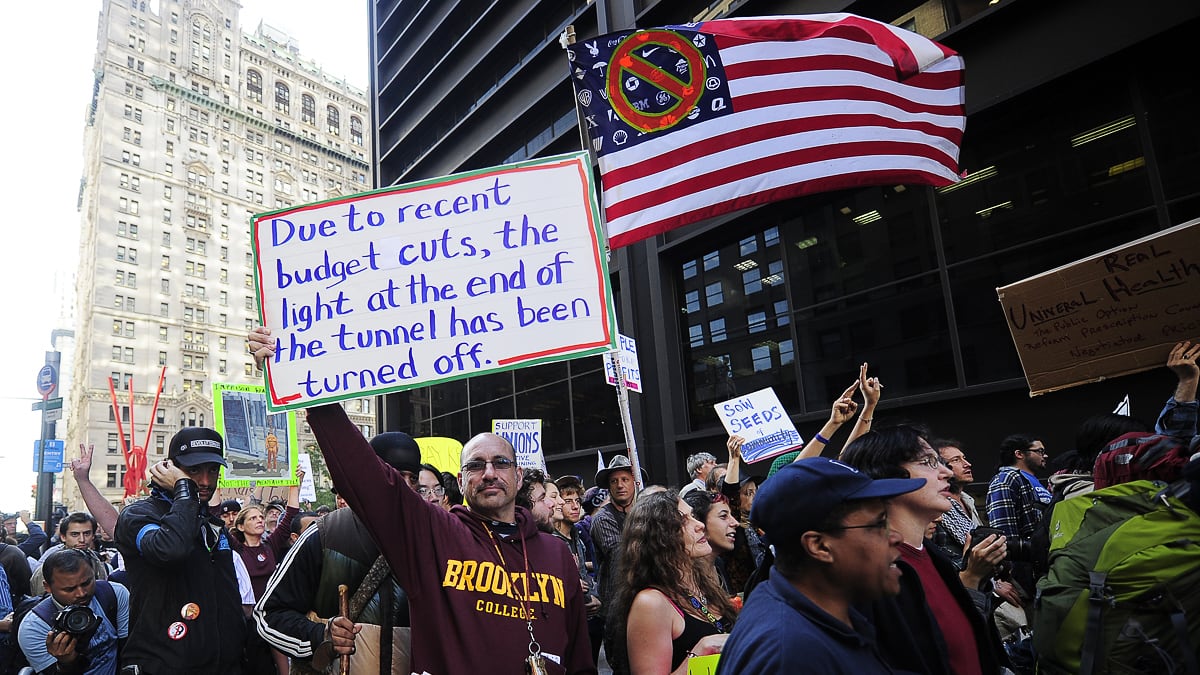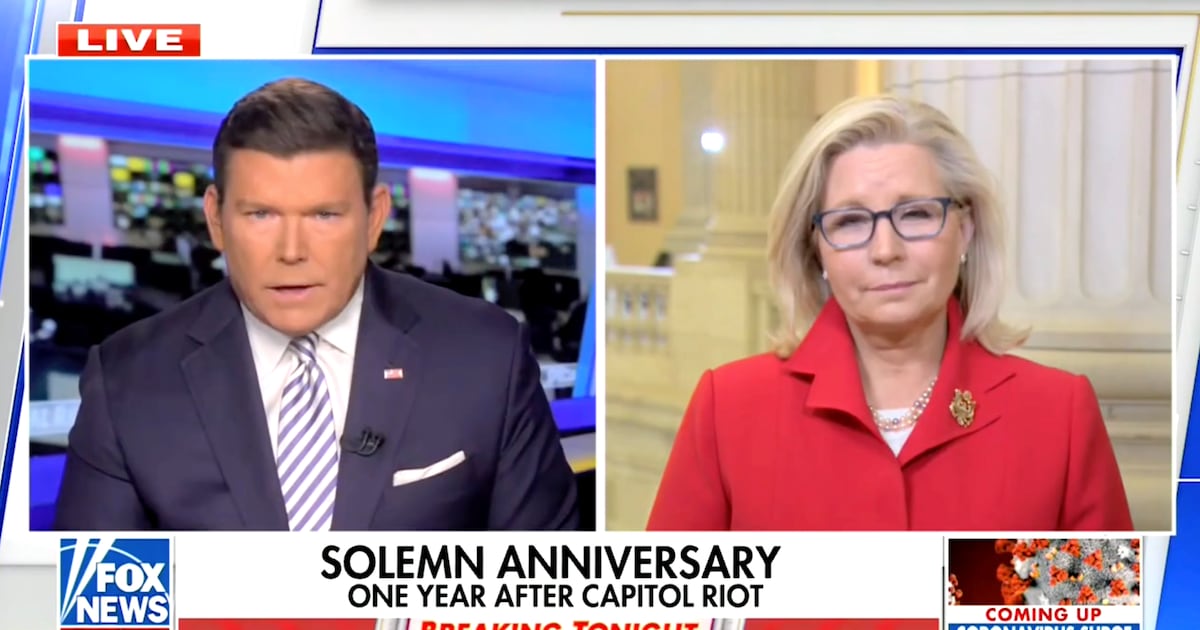Cops with plastic handcuffs on their belts stood ready to arrest protesters if they took to the street at the start of Wednesday’s march, the biggest yet in the Occupy Wall Street demonstrations.
“Stay on the sidewalk! Stay on the sidewalk!” a police supervisor with a megaphone ordered.
What the protesters call the banksters of Wall Street nearly wrecked the American economy and nobody got arrested. But try blocking traffic and you will be hauled off to jail.
ADVERTISEMENT
Sal DiBenedetto of Long Island learned that on Saturday, when he became one of 700 protesters arrested on the Brooklyn Bridge. He spent nine hours in jail and he was issued three summonses.
“One for blocking traffic, one for failure to disperse,” the 30-year-old member of the laborer’s union said. “I don’t remember the third.”
“Disorderly conduct?” he was asked.
“It could be something like that,” he said.
Goldman Sachs got not so much as a summons when it sold investors $250 million in bundled mortgages it had to know were likely to go bad.
Nor did Fannie Mae, when it faked its earnings so that its top people could pocket more than $200 million in bonuses.

Nor did Standard & Poor’s or Moody’s, after they gave their highest ratings to risky mortgages out of fear they might lose the business of the banks that were peddling the toxic stuff.
“I knew it was wrong at the time,” an S&P managing director named Richard Gugliada has been quoted saying. “It was either that or skip the business.”
The list of greed-driven outrages went on and on, but nary a soul got cuffed. The banks apparently were also too big to jail. Instead of being locked up, they were bailed out. The banksters got even richer as the supposed recovery proved to be an illusion for those of modest means.
Unfairness added a cruel twist to suddenly finding your aspirations beyond your reach, as DiBenedetto did when he entered the job market with a bachelor’s degree in psychology and a master’s degree in mental health.
“You would think with $60,000 in student loans that I’d be able to get out of college and make a good living and have a decent life,” he said.
He ended up doing construction work and picking up a few honest bucks here and there.
“The economy is shot,” he observed.
He relies on the Internet for his news, and he learned online that a group named Adbusters up in Vancouver, Canada, was calling for an Occupy Wall Street protest in Manhattan’s Financial District. He was among the first protesters to arrive three weeks ago at Zuccotti Park.
“I’ve been waiting for this for like 10 years,” he said.
He found himself among kindred souls.
“They have degrees,” he said. “They’re not dumb kids. It’s just that the opportunities have dried up. They did what they were told: ‘Go to college.’ And this is where they end up.”
Others were dropouts or aging hippies or environmentalists or anti-nuke activists or war resisters or simply working people weary of pinching pennies while the banksters rake in billions. Many of them had been briefly hopeful after Obama’s election, but now look to nobody. There were no defined protest leaders and no specific demands, simply a shared outrage at what they felt to be monumental unfairness.
“It’s a complaint about everything,” DiBenedetto said. “There are so many things wrong with the world right now. This is a shout out to say, ‘What the f--k is going on?’”
He saw the park as an outpost of anti-greed, with people sharing food and clothing.
“They got everything, man,” he said.
On the regular marches, the Grannies for Peace often took the lead and set the pace. The others apparently overtook the grannies on Saturday, and 700 of them ended up going onto the roadway of the Brooklyn Bridge rather than the pedestrian walkway. Some have suggested that the police “tricked” them. DiBenedetto thinks the scene was too chaotic to have been a conspiracy. He believes that some of the marchers simply chose to go that way and others followed. They were arrested—as none of the banksters have been.
The result was that even more protesters flocked to the park. Unions for subway workers and teachers and auto workers, and even Broadway musicians, committed to joining Wednesday’s march.
In preparation, the protesters made such signs as “Democracy Is Not A Spectator Sport” and “They Got Bailed Out, We Got Sold Out,” but none saying “Yes, We Can.” DiBenedetto drew a chrysalis and a butterfly.
“What’s that mean?” another protester asked.
“Transformation,” he replied. “Metamorphosis.”
In the afternoon, they all marched up Broadway, the Canyon of Heroes where New York has traditionally held its ticker-tape parades. They obeyed police instructions to stay on the sidewalks and reached Foley Square without incident.
“No law breaking, no arrests,” a senior police commander said.
The protesters were joined by thousands of union workers. A contingent of students arrived with a banner reading “Arab Spring—European Summer—American Fall.” There was talk of protests in other cities: Chicago, Seattle, Bridgeport.
After a while, they all marched back down to the anti-greed outpost. Some attempted to continue deeper into the Financial District, but impunity there belongs only to the banksters, thanks to a penal code that explicitly prohibits such things as blocking traffic but goes fuzzy when it comes to such things as mortgage-based securities.
Cops arrested a number of protesters just as they no doubt would banksters if the law so dictated. This time, DiBenedetto was not among them. He went home as free as if he had only wrecked the economy.





